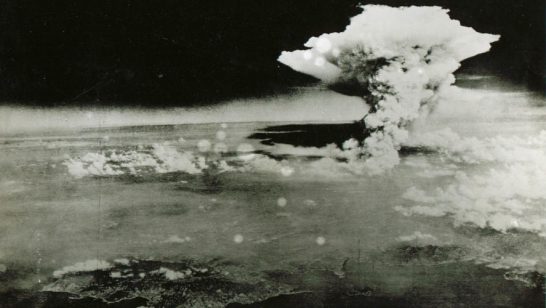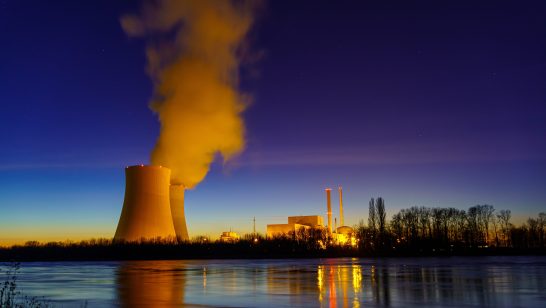
The nuclear era started a lifetime ago with the bombing of Hiroshima. Exactly seventy years later, there are not many survivors still here. However, there is a new approach to nuclear weapons which guarantees that the message of the survivors, or hibakusha, will be shared with, and listened to by future generations. The Humanitarian Impact of Nuclear Weapons Initiative (HINW) is the first narrative that fundamentally challenges the nuclear deterrence paradigm. It may be the beginning of the end of the practice of nuclear deterrence that the nuclear weapon states (NWS), their allies, as well as rogue states, have fatalistically embraced over the last seven decades.
The HINW has gone back to the basics: it focuses on the effects of the use of nuclear weapons on people instead of the “security” effects of their non-use. New scientific studies show that the “nuclear winter” theories of the 1980s, which were ridiculed at the time, were indeed wrong. Not because they overestimated the effects of the wide use of nuclear weapons but because they underestimated them. A recent study shows how the use of only fifty nuclear weapons by both Pakistan and arch-rival India (only a fraction of worldwide stockpiles of nuclear weapons) may lead to the lowering of global temperatures. This may decrease the production of rice resulting in hundreds of millions, up to a staggering two billion, deaths from global famine.
The use of nuclear weapons likely contradicts the basic principles of humanitarian international law i.e. the principles of proportionality and the non-targeting of civilians. Nuclear weapons are inhumane and out of sync with modern societies that have outlawed all other weapons of mass destruction (chemical and biological) as well as weapon systems such as landmines and cluster munitions. For exactly the same reasons, the proponents of the humanitarian initiative argue that nuclear weapons must also be outlawed. 113 states have already adopted the Humanitarian Pledge, launched by Austria after the third HINW conference in December 2014, and this number is increasing. The Pledge points to the legal gap outlined above and in the foreseeable future will most likely lead to multilateral negotiations for a prohibition on nuclear weapons, irrespective of the view of the NWS.
The change in position by the Vatican is indicative of the shift towards delegitimising nuclear weapons. During the Cold War, nuclear weapons use was regarded by the Holy See as illegitimate except in rare circumstances but nuclear deterrence was allowed as long as the number of nuclear weapons went down significantly. The current position is radically different: nuclear weapons use can no longer be regarded as legitimate and neither can nuclear deterrence, without exception.
Of course, the nine states that possess nuclear weapons do not agree. France was loath to even mention the humanitarian initiative at the recent Nuclear Non-Proliferation Treaty (NPT) Review Conference, even though it did so at the previous Review Conference five years ago. Psychologists call this denial. It also fits Robert Lifton and Richard Falk’s 30 years old definition of nuclearism, which they define as ‘a psychological, political and military dependence on nuclear weapons, the embrace of the weapons as a solution to a wide variety of human dilemmas, most ironically that of “security”‘. Instead of eliminating these weapons of mass destruction, the nuclear weapon states are modernising their nuclear arsenals. The US is planning to spend approximately one trillion dollars on nuclear weapons and their delivery systems in the coming three decades. This makes a mockery of their promise to eliminate nuclear weapons. It is then unsurprising that the last NPT Review Conference failed as predicted. As long as the NWS do not take their legal obligation to get rid of nuclear weapons much more seriously, it is easy to predict the failure of future Review Conferences as well.
The more that the NWS try to distance themselves from the humanitarian initiative, the more the idea behind it seems to gain traction in the rest of the world. NWS and other states clinging onto these inhumane weapons will be increasingly stigmatised. Indeed, it is not tenable for NWS to keep their nuclear weapons when they have a legal obligation, under the NPT, to get rid of these weapons and the rest of the world (including Iran) are fulfilling their obligations under the same NPT, and rightly perceive these weapons as threatening.
The odds are that the NWS will lose this game in the end. Not by coercion, but by the strength of the ideas behind the humanitarian initiative. Advocates of this approach are very much aware that they themselves are unlikely to be able to convince the NWS to change their position. The change of mind should come from those within these states. Democratic NWS will be most open to such positive ideas. The UK is the most likely to feel the pressure from within. The debate over the future of the British nuclear weapons system, which is based 40 miles from Glasgow, at the time of the Scottish referendum gives an indication of the range of views there. But the non-democratic states can also change their mind. It is worth remembering that the four states that gave up nuclear weapons up until now – South Africa, Ukraine, Kazakhstan and Belarus – could not be called fully, or sometimes even partially, democratic at the time of their decision.
The impact of the HINW may be first felt in the non-nuclear NATO member states. Norway, Denmark and Iceland have already voted in favour of humanitarian resolutions in the past, while Canada and Romania abstained. Norway even organised the first humanitarian conference in 2013. The pressure in other NATO member states is also increasing, especially in those that still host US B-61 tactical nuclear weapons, which are proving to be irrelevant in the current crisis with Russia. The Flemish Parliament unanimously voted in favour of a resolution against nuclear weapons last April, which is notable given that B-61 bombs are located in the northern part of Belgium. Two weeks ago, enough signatures were collected in the Netherlands to organise a debate about a ban in the Dutch Parliament. In short, it is unlikely that all of the non-nuclear weapon states inside NATO will believe that it is in their national interests to remain absent when the multilateral negotiations to ban nuclear weapons begin. And that will come soon.
The opinions articulated above represent the views of the author(s), and do not necessarily reflect the position of the European Leadership Network or any of its members. The ELN’s aim is to encourage debates that will help develop Europe’s capacity to address the pressing foreign, defence, and security challenges of our time.



